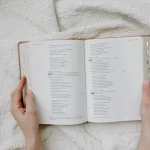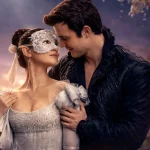When I first started reading, I used to avoid the word “classics.” It sounded heavy, formal, and like the type of book teachers forced students to read. But over time, I realized classics aren’t just old dusty novels, they’re books that shaped how we think, write, and even live today. They’re the ones that continue to spark conversations across generations.
So if you’ve ever wondered what books are considered classics and why people still swear by them, let’s dive in.
So, What Makes a Book a “Classic”?
A classic book isn’t just about age. It usually has:
- Timeless themes – like love, identity, freedom, or morality.
- Cultural influence – it shaped society or literature in some way.
- Enduring popularity – it’s still read decades (or even centuries) after publication.
- Deep characters and storytelling – they still feel relatable, even today.
Basically, classics are the books that refuse to fade away.
Some Widely Considered Classics
Here’s a list of books that almost always pop up when people talk about literary classics:
- Pride and Prejudice by Jane Austen – witty romance and social critique.
- To Kill a Mockingbird by Harper Lee – tackling racism and justice through a child’s eyes.
- 1984 by George Orwell – a chilling look at surveillance and power.
- Moby Dick by Herman Melville – obsession, fate, and the sea.
- The Great Gatsby by F. Scott Fitzgerald – the glitz, glamour, and emptiness of the American Dream.
- War and Peace by Leo Tolstoy – sweeping history, love, and philosophy.
- The Odyssey by Homer – an epic that has influenced storytelling for millennia.
- Frankenstein by Mary Shelley – groundbreaking science fiction and moral dilemmas.
Why Classics Still Matter Today
I know some people think, “Why read something written centuries ago when new books are out every day?” I had the same thought at one point. But classics stick around because:
- They give context – Modern stories often borrow themes from them.
- They build empathy – Reading different eras opens your mind to new perspectives.
- They challenge you – Classics don’t always give easy answers; they make you think.
- They connect generations – Your grandparents and you can talk about the same book.
Classics Aren’t Always “One Size Fits All”
Here’s something I learned: not everyone enjoys the same classics. For some, Moby Dick feels boring, while others find it life-changing. And that’s fine. A classic doesn’t have to be universally loved, it just has to endure.
My Final Thoughts
Whenever I pick up a classic, it feels like sitting down with someone who lived centuries before me and still has something to say. That, to me, is the real magic. So if you’re wondering what books are considered classics, think of them as the voices that never go silent.
Know Your Author
Hi, I’m Emon
I’m the voice and heart behind Whimsy Read. After nine years in the world of banking, I followed my passion for storytelling into the world of SEO and content strategy. Now, I blend that analytical eye with a deep love for literature to bring you book reviews that are thoughtful, honest, and always focused on the stories that stay with you.
When I’m not reading or writing, you’ll find me enjoying joyful chaos with my wife and three kids, getting lost in a new series, or revisiting my old loves: theater, music, and gaming. At the end of the day, I believe great books are meant to be shared, and I’m so glad you’re here to share them with me.







Leave a Reply